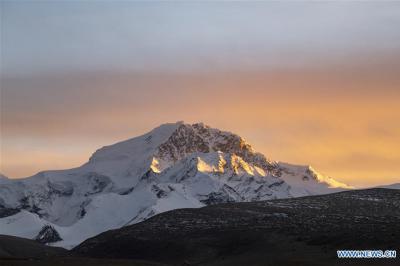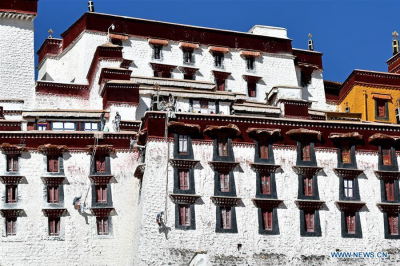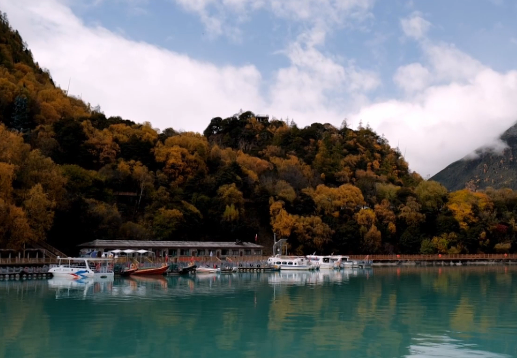| Sep.1,2017-- A Chinese Tibetan cultural exchange delegation has visited Canberra and briefed government officials, think-tanks and the Australian press about the latest development of China's Tibet Autonomous Region.
The delegation met with Australian government officials on Wednesday. During the meeting, Australian officials said China's development is of great importance to Australia.
Australian officials also spoke highly of the friendly relations between the two countries and the two peoples, expressing their readiness to boost cooperation and exchange with China's Tibet Autonomous Region in the fields of agriculture, science and technology as well as tourism.
While meeting with scholars from the National Library of Australia and the journalists from Australia's mainstream media, the Chinese delegation introduced them, with series of statistics, the achievements Tibet Autonomous Region has scored in the past more than 50 years, including socio-economic development, protection of cultural heritage and use of the Tibetan language, among others.
With regard to the Tibet-related issues raised by the Australian side, Wang Yanwen, head of the delegation and associate inspector of the Department of Human Rights of China's State Council Information Office, stressed that Tibet has been part of China since ancient times.
She said the Chinese government is firmly opposed to any interference in China's internal affairs as well as any activity that undermines peace under the pretext of religion and human rights.
Wang also stressed that the Chinese government is especially against certain international forces colluding with the Dalai Lama clique to engage in anti-China separatist activities.
The delegation's visit to Australia aims to introduce the current development of Tibet, especially good and stable life of local people, Wang said, noting that the two countries should respect each other and oppose irresponsible remarks on Tibet.
The Australian side also had a discussion with the Chinese delegation on the development of human rights in Tibet.
Wang said the Chinese government always attaches great importance to the rights and interests of the Tibetan people and respects the Tibetan culture and religion.
She highlighted that the rights to subsistence and development are the primary, basic human rights, citing the great improvement of people's living standard in the autonomous region as the most notable achievement.
Wang told Xinhua that she believed that the delegation's visit would help Australians better understand Tibet.
She also expected more Australians to visit Tibet and witness Tibet's rapid development in person.
The Australians scholars and journalists said they hoped to have a comprehensive and objective understanding of Tibet through more visits by such Chinese cultural exchange delegations rather than biased media reports.
The Chinese delegation will also tour Auckland, New Zealand.
|
- Home
- News Tibet |Exclusive |China |World |Other Tibetan-Inhabited Area |Tibet through the Eyes of Foreigners |Related News
- Documents White Papers |Others
- Photo Politics |Economy & Society |Culture & Religion |Human & Nature |Beautiful Tibet |Other Tibetan-Inhabited Area |Exchanges |Related
- Video News |Documentary |Micro-Video |Entertainment
- Art
- Tourism
- In Focus
- About Tibet






